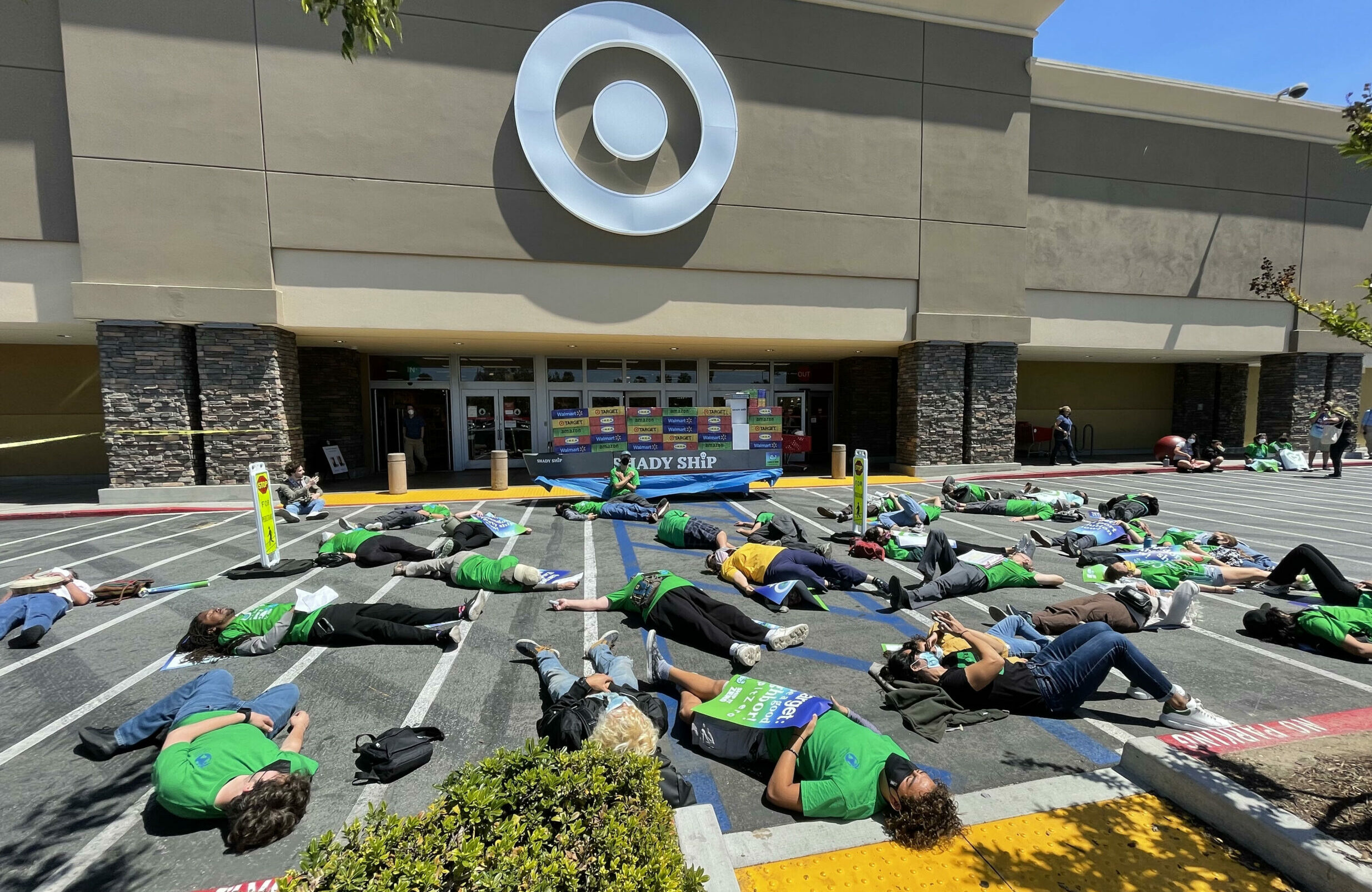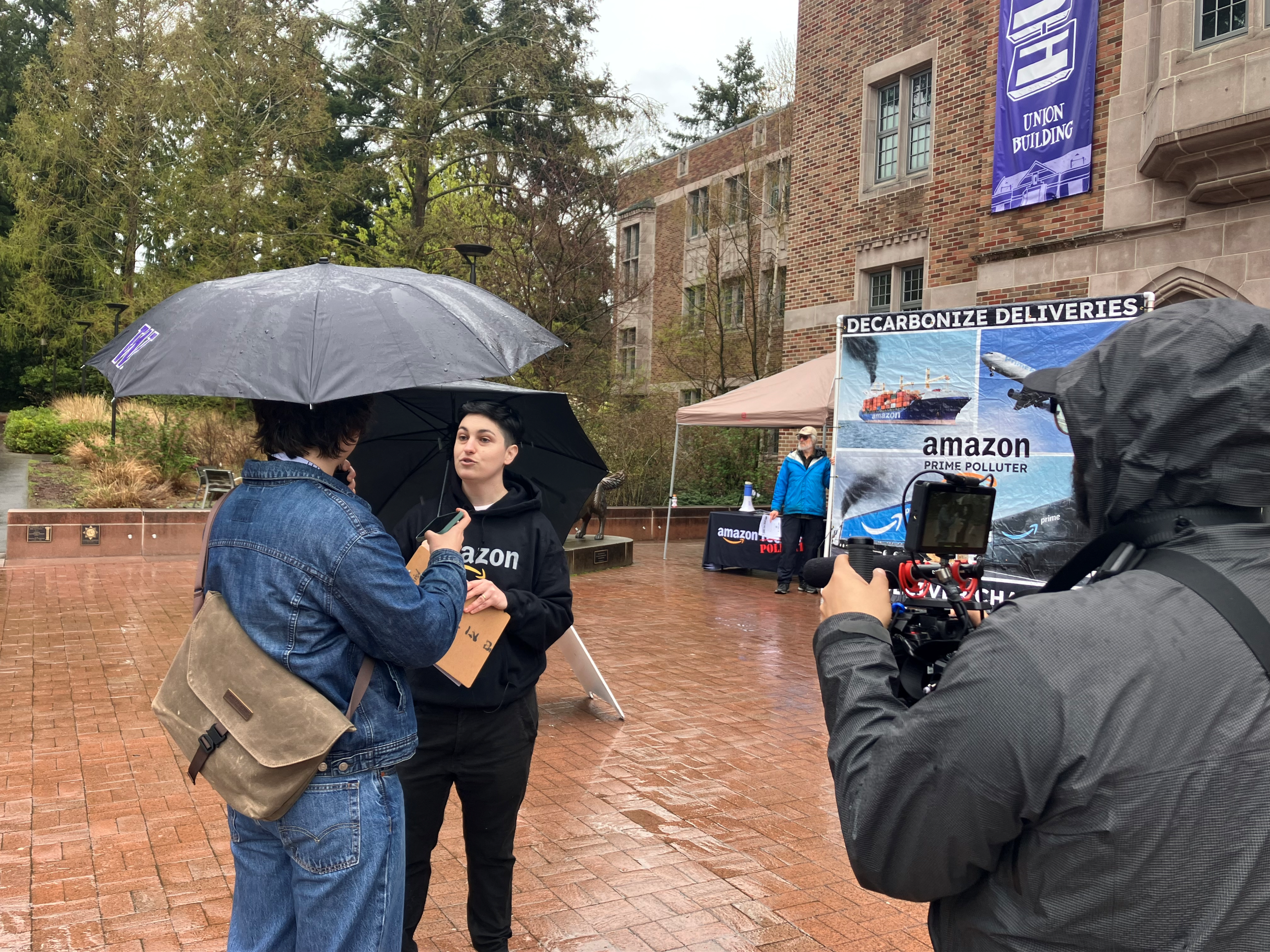


By Alex Lynch, Student at California State University Long Beach
Take a look around, at your shirt, shoes, chair, desk, your vacuum-sealed travel mug, and then back to your smartphone. Most of these things crossed an ocean to get here. You first saw them at the store. That wonderful place that meets your needs and satisfies your wants, a marvel of modern prosperity. Each product on the shelves hopes to provide you some measure of value, be it minutes saved, ounces of coffee kept warm, or hours of extended battery life. Yet not listed on end-cap displays or in catalogs are the miles of fossil-fueled cargo shipping, cubic yards of toxic pollution, or the years of average life expectancy shaved from port-adjacent communities. The environmental and health impacts of our global supply chains remain out of sight and out of mind.
Currently, the ocean shipping industry relies on the dirtiest fossil fuel available to power its cargo ships – heavy fuel oil. This tar-like substance is the waste product of the oil refining process. Get this: all of the junk that is removed from crude oil to make cleaner-burning fuel, is then turned into heavy fuel oil, which is burned by ships traveling across our oceans to our shipping ports.
With the supply-chain disruption of the COVID-19 pandemic, there’s been a lot of attention on the ports of Los Angeles and Long Beach. Cargo ships sit idling, contributing to a long-standing, fast-growing public health crisis in the port-adjacent communities left breathing in the polluted air. In 2021, the cargo ship congestion at our ports caused an increase in nitrogen oxide emissions equivalent to adding 5.8 million passenger cars to the region, and an increase in particulate matter emissions equivalent to 100,000 big rigs per day. Both pollutants are associated with higher risk of asthma, cancer, and premature death. Sadly, port-adjacent communities experience up to eight years lower life expectancy than the Los Angeles County average, and the highest risk of cancer regionally.
There’s been very little said about the big retailers that play an outsized role in port pollution: Target, Amazon, Walmart, and more. According to the Ship It Zero coalition, Target is a top retail importer into the U.S. and a top contributor to the ship pollution and congestion crisis at our local ports. Ninety-five percent of Target’s imports overall pass through the West Coast, and from 2018-2020, its cargo ships emitted 6.4 million tons of carbon dioxide while moving 1,130,832 shipping containers through the ports of Los Angeles and Long Beach.
On Earth Day, the California State University’s Environmental Science and Policy Club, joined by climate advocacy organizations, environmental justice groups, and the faith community, drew attention to this issue by protesting the role Target plays in the pollution crisis at our local ports. We held an 8-minute “die in” at Target’s Long Beach store, and called on the retail giant to transition to 100% zero-emissions ocean shipping this decade.
There’s some good news on the horizon. Green shipping initiatives like coZEV and President Biden’s First Movers Coalition are in the works. A green shipping corridor between Los Angeles and Shanghai has been proposed. And last week, in honor of Earth Day, the Long Beach City Council introduced a resolution on zero-emissions shipping, following in the footsteps of a similar move by the Los Angeles City Council last year.
Unlike some of its competitors, Target has been notably missing from these initiatives. As one of the main importers into our ports, we need Target to step up and make a commitment on 100% zero-emissions shipping this decade. The retail giant has the ability to help move toward true modern prosperity for all.
Biography: Alex Lynch is a senior at California State University Long Beach studying Environmental Science & Policy, where he is currently focused on quantification of arboreal carbon-dioxide sequestration. He is also the treasurer of the Environmental Science & Policy Club. He grew up in Coarsegold, CA, and has lived in Long Beach, CA, since 2016.

Recent Updates





